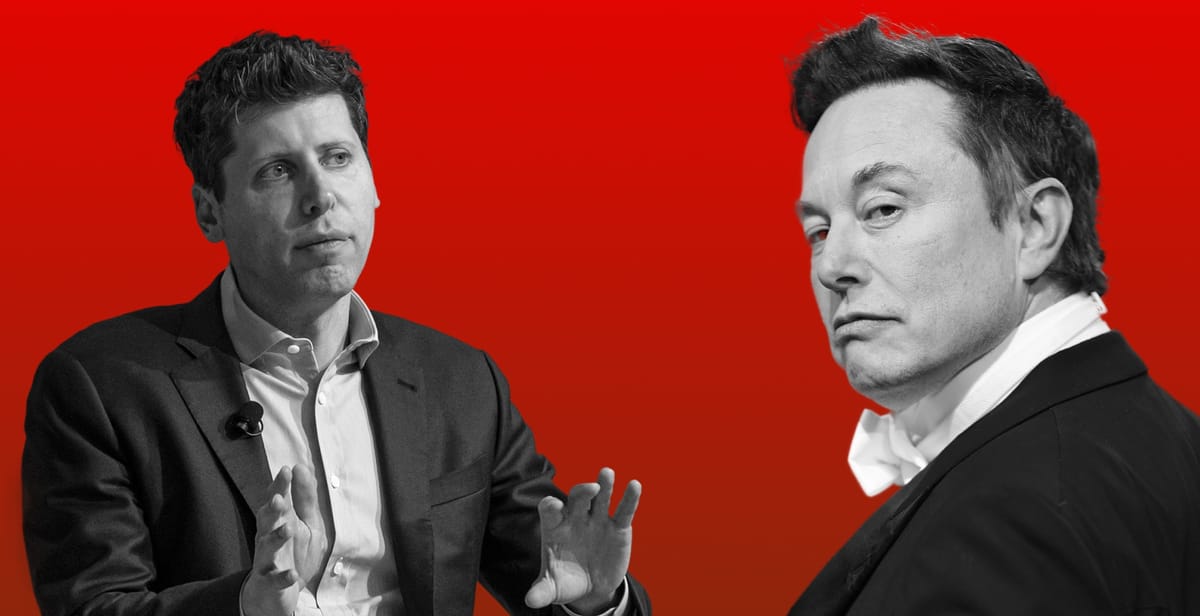In a turn of events, OpenAI is now taking Elon Musk to court with a blistering countersuit accusing its estranged co-founder of trying to sabotage the company after failing to control it.
Filed Wednesday in a California federal court, OpenAI’s counterclaim paints Musk as a disgruntled founder turned rival who allegedly launched a “relentless campaign” to undermine the AI lab he helped start nearly a decade ago. The startup alleges that Musk, after abandoning OpenAI, couldn’t stomach its rise and sought to hijack it once it became successful — not for the good of humanity, but to serve his own for-profit venture, xAI.
In a statement posted to X, OpenAI summarized its position bluntly: “Elon’s never been about the mission. He’s always had his own agenda.”
Elon’s never been about the mission. He’s always had his own agenda. He tried to seize control of OpenAI and merge it with Tesla as a for-profit – his own emails prove it. When he didn’t get his way, he stormed off.
— OpenAI Newsroom (@OpenAINewsroom) April 9, 2025
Elon is undoubtedly one of the greatest entrepreneurs of our…
“Should his campaign persist, greater harm is threatened,” OpenAI’s legal team wrote. “To OpenAI’s ability to govern in service of its mission, to the relationships that are essential to furthering that mission, and to the public interest.”
The 100-page filing is the latest turn in a long-simmering feud between Musk and OpenAI CEO Sam Altman. Musk sued OpenAI earlier this year, claiming the company betrayed its founding promise to develop artificial general intelligence for the benefit of all, not for shareholder profit. OpenAI is in the midst of a complex corporate restructuring as it seeks to convert its for-profit arm into a public benefit corporation — a move Musk has tried to block.
But OpenAI’s new lawsuit flips the script. It claims Musk had no objection to moving toward a for-profit model when he thought he could be in charge. In fact, the company alleges Musk quit in 2018 after the team rejected his demand to control the board, serve as CEO, and hold a majority equity stake. According to the filing, Musk even floated merging OpenAI with Tesla or using it as a “cash cow” to fund a Mars colony — all while contributing far less than the $1 billion he had originally pledged.
Musk, the suit argues, only turned hostile once OpenAI’s research, including ChatGPT and GPT-4, began grabbing headlines and dominating the AI race. The countersuit accuses Musk of harassing the company through public attacks to his hundreds of millions of followers on X, filing a “sham” $97 billion takeover bid, and pressuring regulators to investigate OpenAI.
Musk’s legal team, for its part, defended the takeover offer as genuine. “Had OpenAI’s board genuinely considered the bid, they would have seen how serious it was,” said attorney Marc Toberoff in a statement. “It’s telling that having to pay fair market value for OpenAI’s assets allegedly ‘interferes’ with their business plans.”
Still, OpenAI’s lawyers argue that Musk’s moves were part of a calculated strategy to damage its fundraising and create uncertainty — especially as the company races to complete its restructuring before year’s end to retain access to recently raised capital.
Beyond the legal drama, the countersuit offers a rare window into the power struggles inside one of the world’s most influential AI companies. It alleges Musk’s actions were not only disruptive but deceptive — leveraging his position as a former donor to gain access to sensitive company data while secretly building xAI behind the scenes. It also highlights concerns that Musk’s influence could erode OpenAI’s relationships with partners, investors, and employees — many of whom, the suit claims, remember how Musk gutted Twitter post-acquisition.
Perhaps most striking is the accusation that Musk’s $97 billion bid to acquire OpenAI’s nonprofit arm was never real. The filing claims the offer lacked financing, included inside jokes referencing Musk’s favorite sci-fi books, and was designed more to generate media buzz than to close a deal.
OpenAI is asking the court to bar Musk from further interference, and to hold him financially liable for the disruption already caused. The case is set for jury trial in spring 2026.

